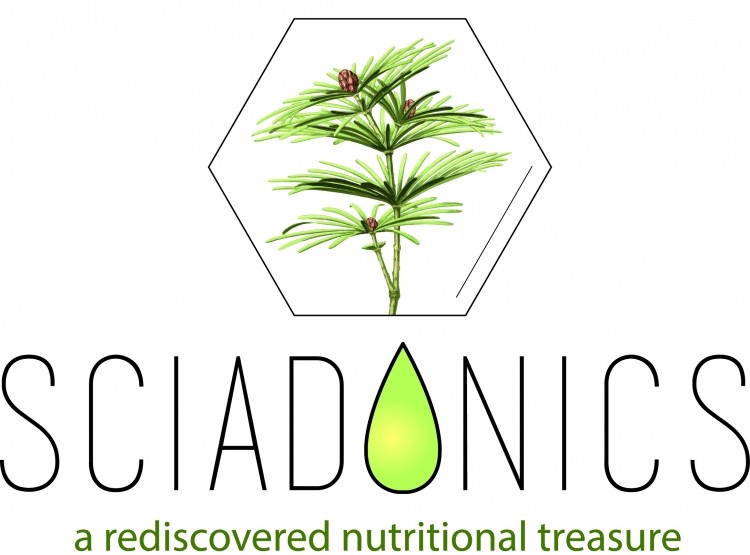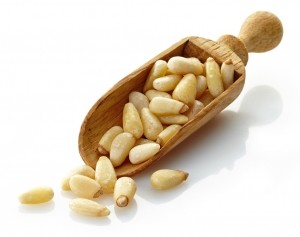Company forms to push benefits of sciadonic acid

Sciadonic acid (SCA) is an unusual non-methylene-interrupted fatty acid that can be found in the seeds of a number of gymnosperms, an ancient family of plants whose seeds are unprotected by an ovary or a fruit. Examples include conifers, cycads and ginkgo.
Lipid chemist Alvin Berger, PhD, is co-founder and CEO of the new company, called Sciadonics Inc. The story of the sciadonic acid, or SCA, is another one of those overnight debuts that took decades. Berger did much of his PhD work at the University of California-Davis on the acid, and came to appreciate its potential anti-inflammatory properties. But SCA was in the wrong place at the wrong time, Berger said, because his work coincided with the rise of fish oil.
Fish oil ascendant
“I had all this background in the late '80s and through the '90s working on SCA. I was watching the lipid space evolve around me and at that time it was all fish oil, fish oil, fish oil. When I first started developing a product everyone said there would be no market for it,” Dr Berger told NutraIngredients-USA.
So Dr Berger moved on to other things, including stints with Nestlé and Cargill and work on a different source of omega-3s from herring roe. He said he saw the omega-3s space mature, and start to become commoditized, with suppliers moving to new forms of oil or higher concentrations in an effort to differentiate themselves and to stay out of the trap of having to compete solely on cost.
“The fish oil market is now really now quite mature and saturated. There have been developments, but I like to call them variations on a theme. Some people use fish, some people use krill, some talk about phospholipids, but in the end it’s the same fatty acids. There really have been very few new fatty acids that have come on the market. CLA [conjugated linoleic acid] is one, and we’ve heard a little bit about SDA [steriodonic acid], too. When I reach out to businesses now about using SCA as an ingredient I’ve had a very positive response,” he said.
Hole in the diet
While doing his initial work along ethnobotanical lines on SCA, Berger said he came to appreciate the fatty acid’s missing place at the dietary table. The seeds of gymnosperms are still consumed as part of the diet in some societies. Juniper berries are consumed as a minor part of the diet in the Scandinavian countries, and pine nuts have been a part of the diet in Mediterranean countries and were a staple in the American Southwest for centuries. But Berger said in the past these seeds were ubiquitous and were consumed in far greater quantities, but as organized agriculture, and in particular industrial agriculture, started to take hold, the consumption of these seeds started to fall by the wayside. Other more easily cultivated and harvested crops started to come to the fore. And Berger speculated that small mammals such as squirrels used to be consumed with some regularity by hunter gather-type societies, and these small mammals had concentrated levels of SCA in their tissues from consumption of those same seeds.
“In places where these seeds have been consumed, the oils of these seeds have been known for their health properties,” Berger said. He said he has done a variety of research on SCA in mouse models, and confirmed the fatty acid’s anti-inflammatory properties both as an ingestible and as a topical preparation.
Finding a good source
Berger said his work on the herring roe product had put him in contact with Norwegian investors who were intrigued by the potential of a new fatty acid. The problem then became how to rationalize production to bring the supply up to a commercial level.
“It’s economical, it’s available and it has a history of safe use in ethnic cuisine.This stuff is really interesting but there were no commercial sources. We spent more than a year and a half looking at seeds from around the world as well as at some byproduct sources,” Berger said. The precise source and species is proprietary, he said, though he did confirm that it is a conifer.
The company has made its first public splash with the launch of a website, Berger said. The next baby step will be a small scale product launch in Scandinavian markets.
“You start in smaller markets and test it out and learn some things on the marketing, the messaging,” Berger said.
The company is also concurrently working on US regulatory approvals, which Berger said will include GRAS and NDI filings. In addition, Berger said Sciadonics has patents on a number of aspects of the ingredient, including on its use in concert with certain anti-inflammatory drugs.

















